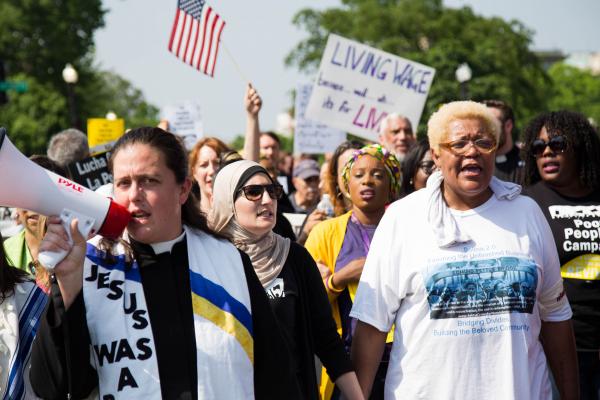May 14, 2018
“Today is Mother’s Day,” Rev. Dr. Liz Theoharis, co-chair of the Poor People’s Campaign: A National Call for Moral Revival, said to the crowd. “A holiday established by women with a rich history of activism and resistance, who called for an end to violence and won. Standing in our nation’s capital, I have a question for our country: Is denying healthcare to mothers and their children a way to show love to mothers?"
Read the Full Article

Already a subscriber? Login
